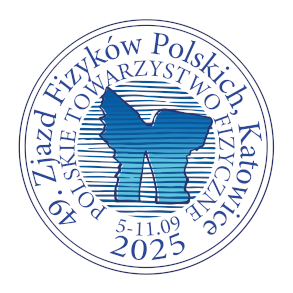Speaker
Description
Pulse Shape Discrimination for alpha background reduction in LEGEND
A. Biondi, G. Zuzel
*) M. Smoluchowski Institute of Physics, Jagiellonian University, Krakow, Poland
Neutrinos are yet one of the most important open questions of modern particle physics. Their oscillations proved that they have mass thus, we have to deal with physics beyond the Standard Model. However, the mass and nature of neutrinos is still unknown. Observation of the Neutrinoless Double Beta Decay (0νββ) would clarify whether neutrinos are Majorana Particles, i.e. their own antiparticles, and would prove Lepton Number Violation (ΔL = 2), opening the path to theories such as Leptogenesis that could explain matter-antimatter asymmetry.
The LEGEND (Large Enriched Germanium Experiment for Neutrinoless ββ Decay) experiment, located in Laboratori Nazionali del Gran Sasso, aims to investigate 0νββ using germanium detectors enriched is $^{76}$Ge. The goal of LEGEND is to prove half-life of 0νββ in $^{76}$Ge up to 10$^{28}$ yr, covering the full inverted hierarchy. To do so, LEGEND requires an extremely low background index (BI) of 0.025 counts/(keV t yr).
Pulse Shape Discrimination (PSD) is the analysis of the time profile of the charge produced by the detector. It has been widely used to distinguish between single charge deposition (signal-like) and multiple charge depositions (background-like), and was one of the core point of the success of experiments as GERDA and MAJORANA DEMONSTRATOR. However, to reach the BI aim of LEGEND it is necessary to extend its application, especially for identification of background events induced by alpha decays (main background source in GERDA).
A wide measure campaign was performed at Marian Smoluchowski Institute of Physics utilising a $^{210}$Po source placed on the p+ contact of a BEGe-like detector, collecting O(10$^6$) alpha events. PSD algorithms are being developed to identify and reject alpha surface events in germanium detectors, improving known techniques and designing Machine Learning based novel algorithms. The measure campaign and the performed analysis will be presented. Future prospects in alpha rejection for LEGEND will be also outlined.

